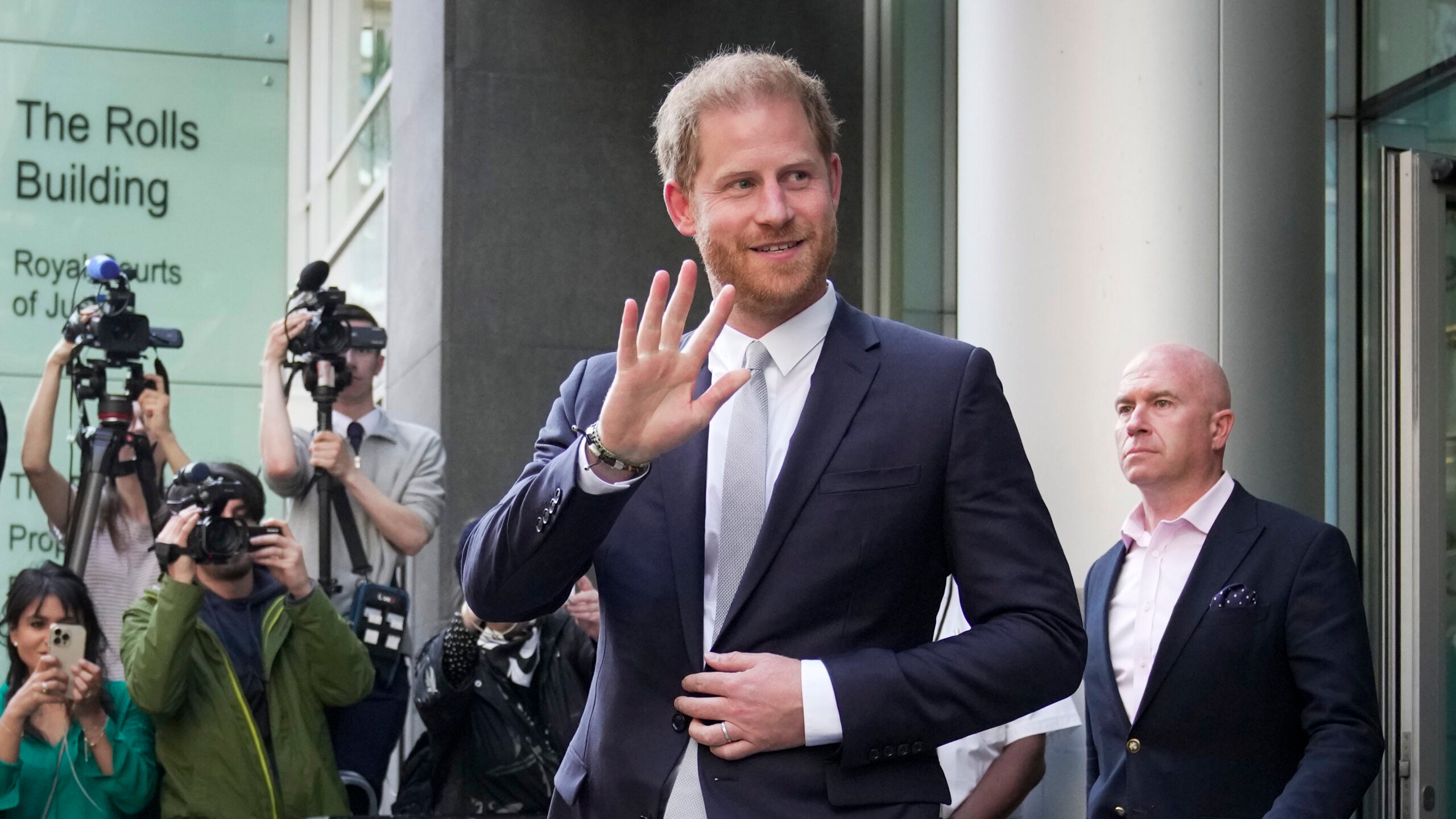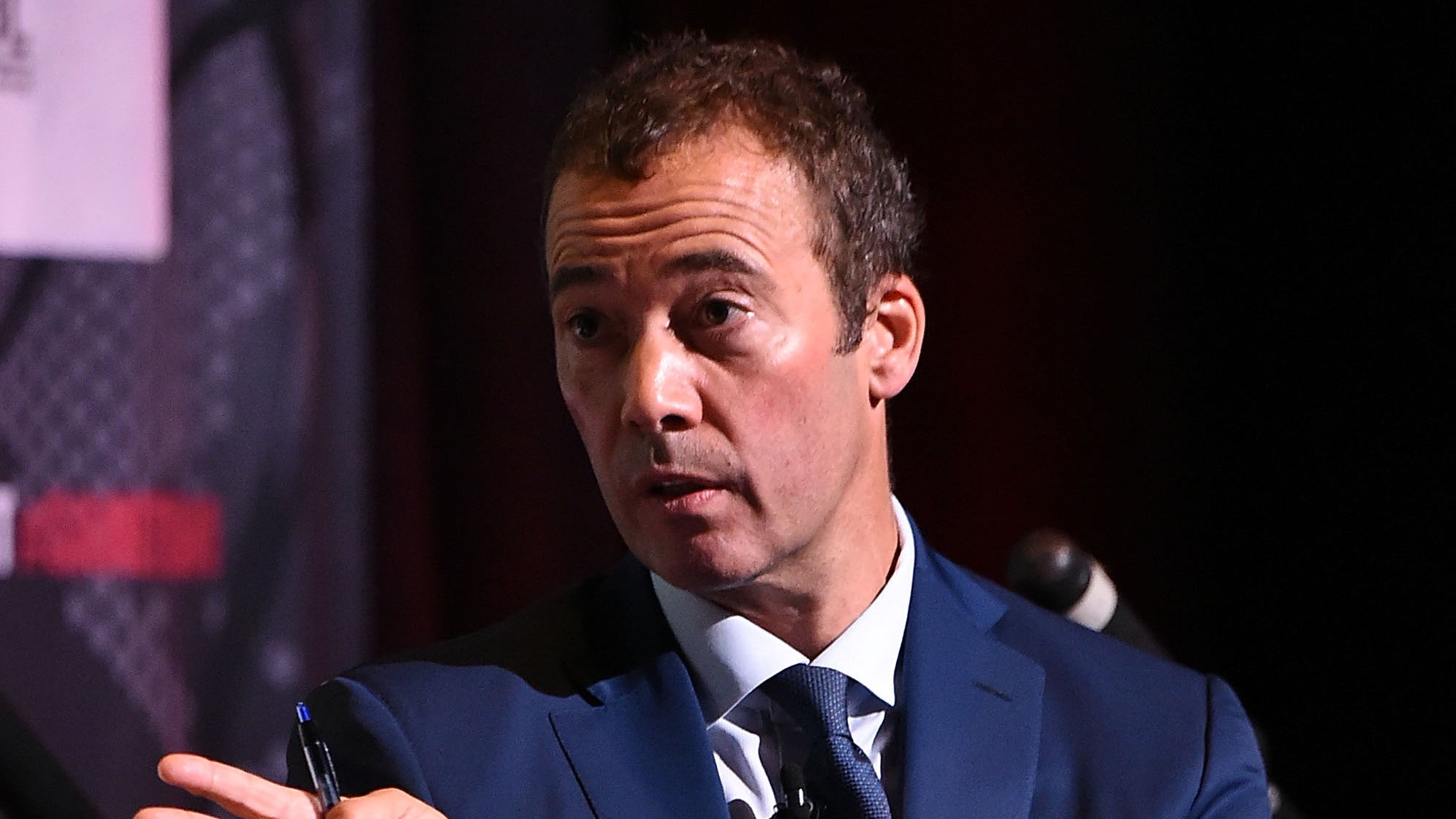LONDON – Hounded by paparazzi all his life, Britain’s Prince Harry won a legal victory Friday against a U.K. newspaper group he accused of hacking into his voicemail in the early 2000s to get scoops.
It’s a vindication for Harry, who has blamed what he calls a poisonous U.K. tabloid culture in part for a fallout with his family, his decision to step down as a working royal and his 2020 move to California with his American wife Meghan Markle and their children.
News with a little more humanity
WPR’s “Wisconsin Today” newsletter keeps you connected to the state you love without feeling overwhelmed. No paywall. No agenda. No corporate filter.
London’s High Court ruled that phone-hacking was “widespread and habitual” in the 1990s and early 2000s at tabloids run by the Mirror Group, and that newspaper executives not only knew about it — but tried to cover it up. The judge said Harry’s cell phone was specifically targeted between 2003 and 2009.
When he testified in this case back in June, Harry became the first U.K. royal in more than a century to take the stand in a courtroom. More than 100 other celebrities joined him as plaintiffs in the civil case. It’s one of several lawsuits underway over phone hacking.
Harry sued the publisher of the Daily Mirror and its sister publications over 33 articles he said were based on information obtained unethically and illegally by hacking into his voicemail. The judge ruled in Harry’s favor in 15 of those 33 instances, and awarded him about $180,000 in damages.
The articles included personal anecdotes about Harry’s grief over his mother Princess Diana’s 1997 death, and about romantic relationships he had as a teenager. One was about a sports injury he suffered, which no one knew about outside his immediate family and friends. Harry has said the hacking led to an atmosphere of mistrust and suspicion among those closest to him, about who was leaking information to the media.
“Vendetta journalism”
Harry now lives in California and did not appear publicly at Friday’s proceedings. In a statement read outside the courtroom by his lawyer, Harry called this “vendetta journalism” and applauded the ruling.
“This case is not just about hacking,” lawyer David Sherborne quoted the prince as saying. “It is about a systemic practice of unlawful and appalling behavior, followed by cover-ups and destruction of evidence — the shocking scale of which can only be revealed by these proceedings.”
The Mirror Group’s parent company, called Reach, issued an apology. It noted that the events in question happened many years ago, and said it was time to “move forward.”
“Where historical wrongdoing took place, we apologize unreservedly, have taken full responsibility and paid appropriate compensation,” Reach Chief Executive Jim Mullen said in a statement.
Mullen said he hoped Friday’s judgement would limit future compensation claims. The company has set aside nearly $60 million to cover legal cases related to phone hacking.
A potential reckoning for the tabloids
But media analysts say that rather than bringing closure to a sordid chapter of U.K. media history, Friday’s ruling could be the start of a fresh reckoning for British tabloids and their executives.
“It’s a pretty bad day for the British media, that’s been trying to sweep this under the carpet,” says media analyst Eleanor Mills, a former top editor at London’s Sunday Times newspaper. “Other newspaper groups will probably be feeling pretty worried.”
In his ruling Friday, Justice Timothy Fancourt mentioned a specific TV and newspaper personality by name: Piers Morgan.
The British-born Morgan has been one of Harry’s fiercest critics, often pillorying the prince and his wife on television. He has called for them to lose their titles of Duke and Duchess of Sussex.
Morgan now works for News Corp’s Talk TV, but used to be the editor of the Daily Mirror from 1995 to 2004, during some of the years when the tabloid is found to have engaged in phone-hacking. Fancourt said in his ruling that Morgan was among the newspaper executives who knew about the practice.
Morgan did not give testimony in this case and has denied any wrongdoing.
9(MDAyMjQ1NTA4MDEyMjU5MTk3OTdlZmMzMQ004))
© Copyright 2025 by NPR. To see more, visit https://www.npr.org.9(MDAyMjQ1NTA4MDEyMjU5MTk3OTdlZmMzMQ004))



